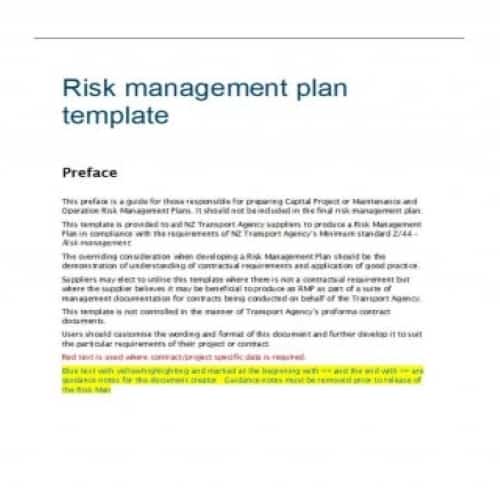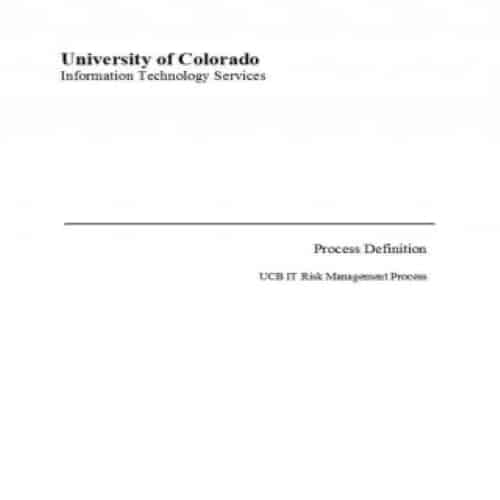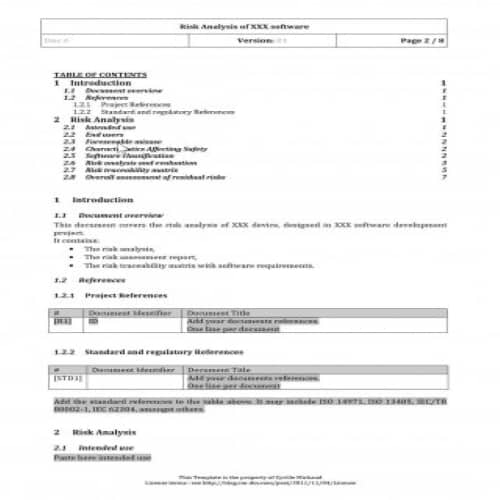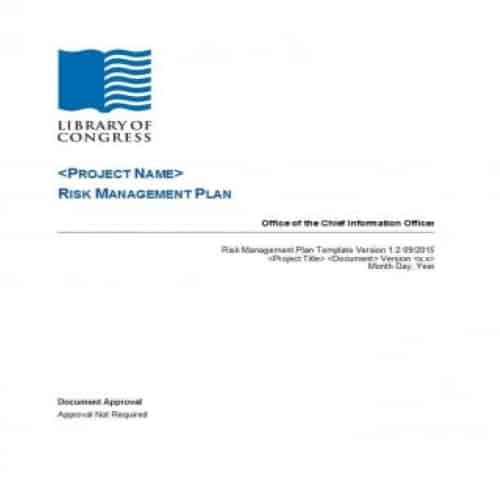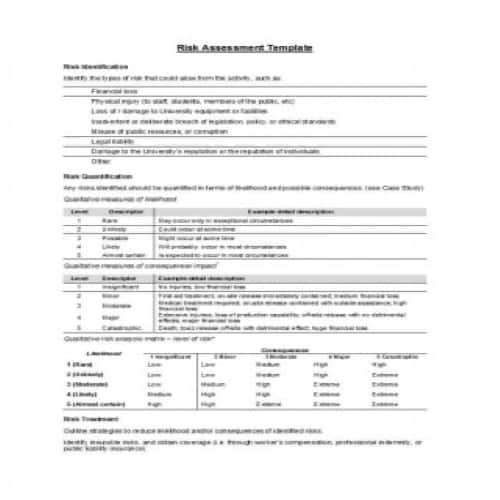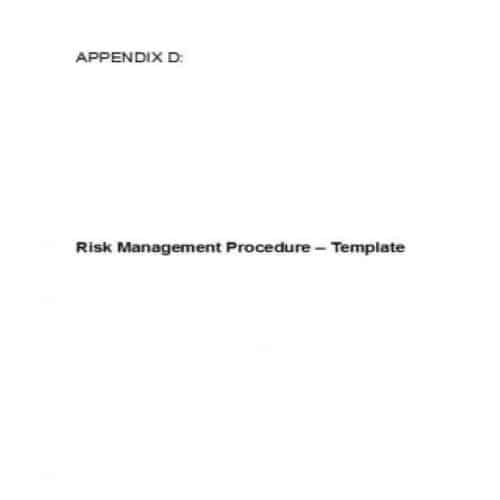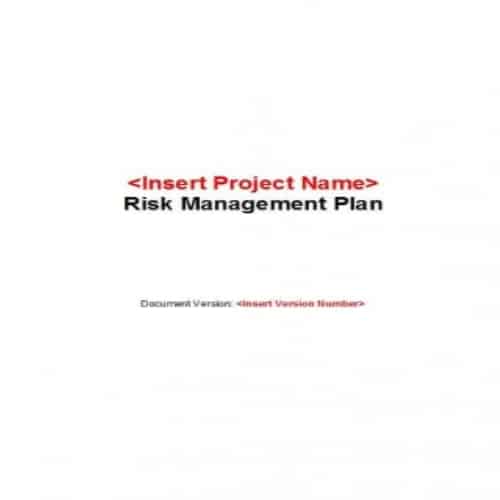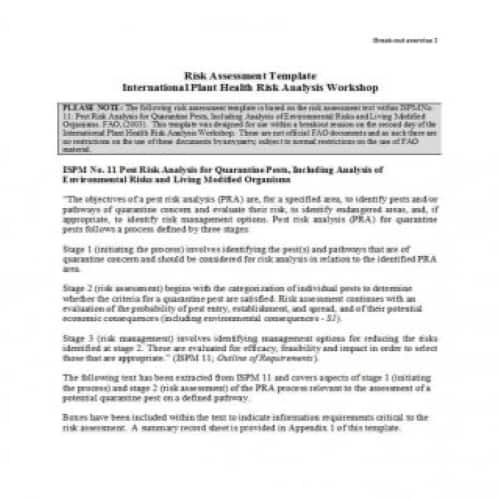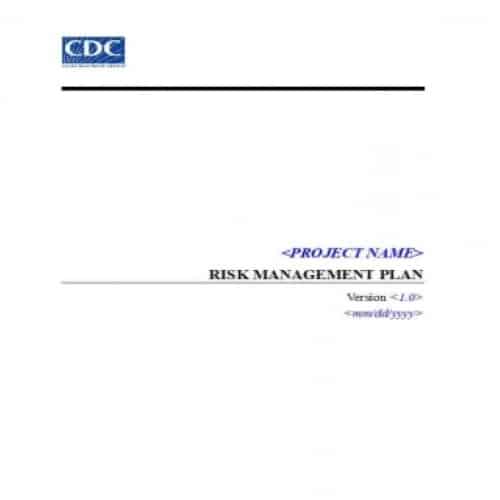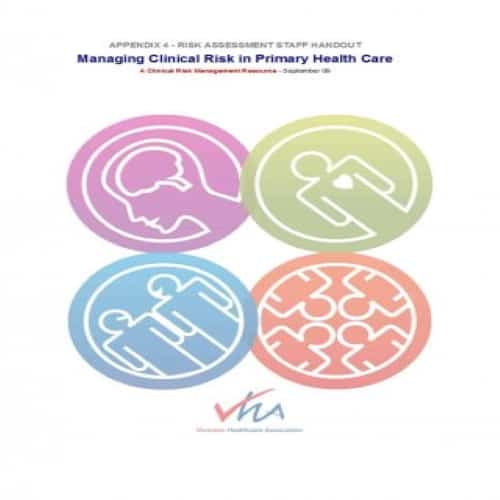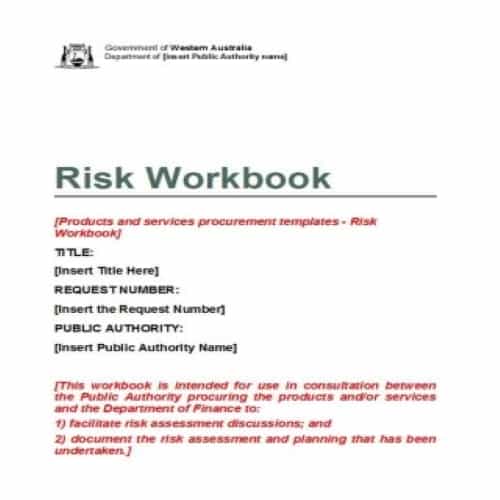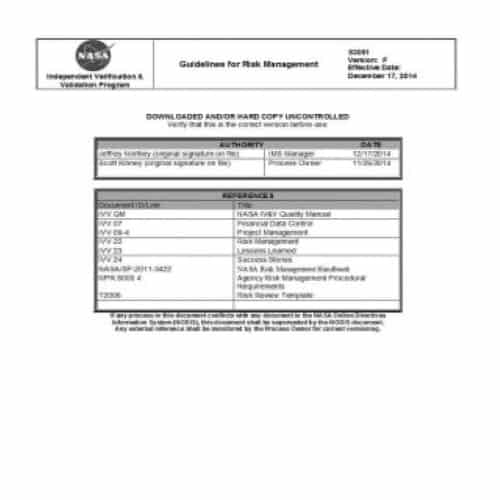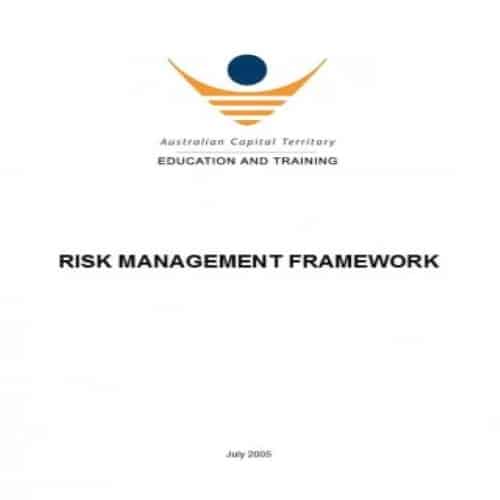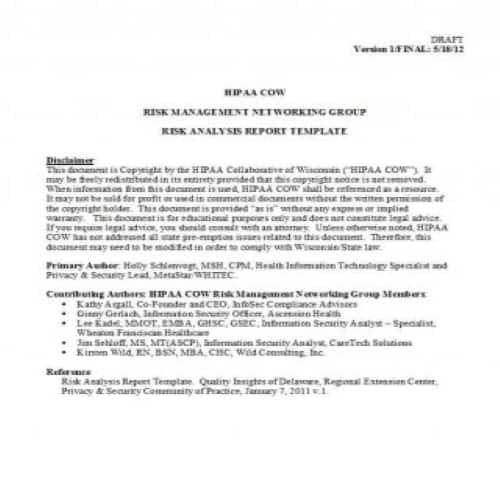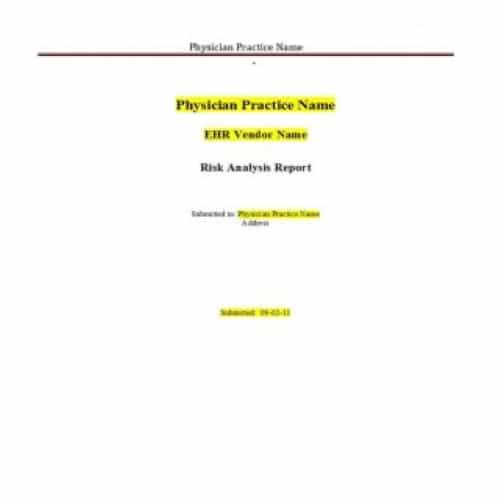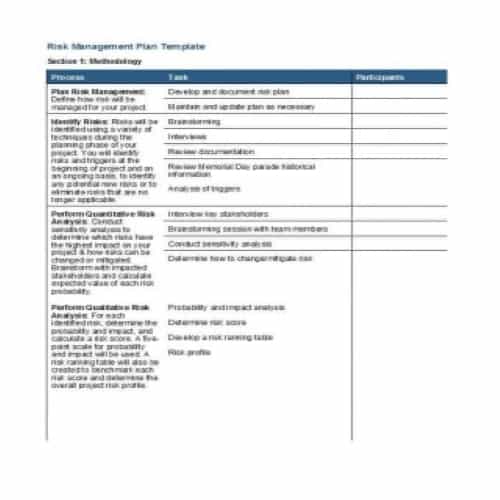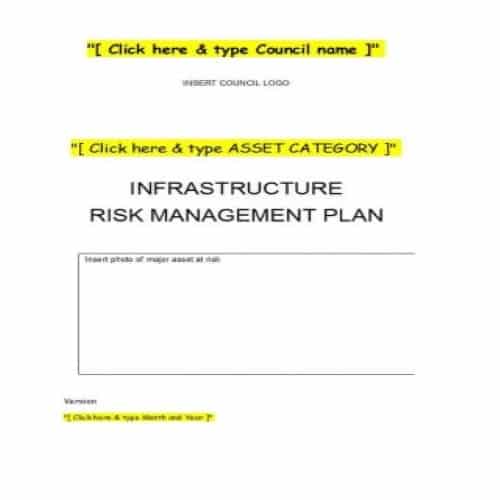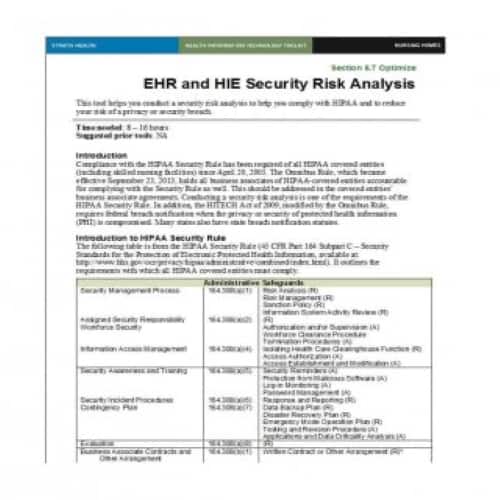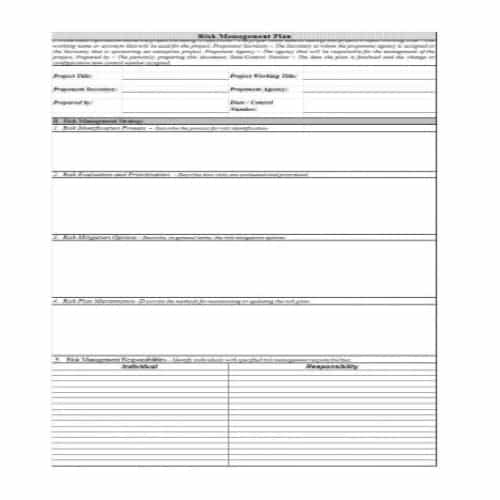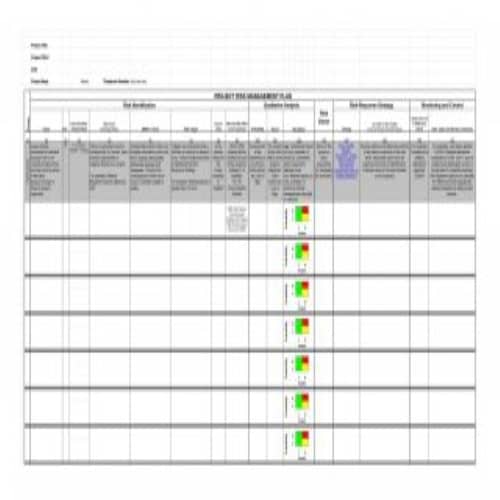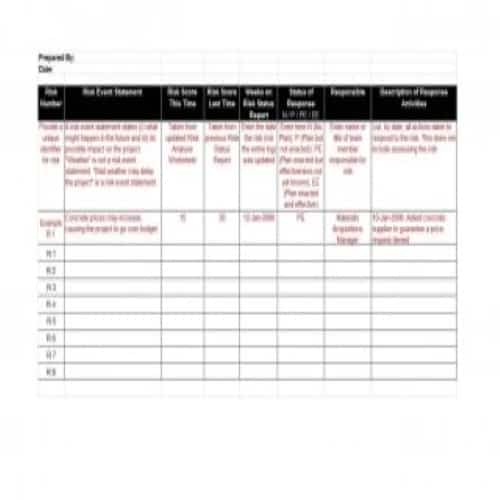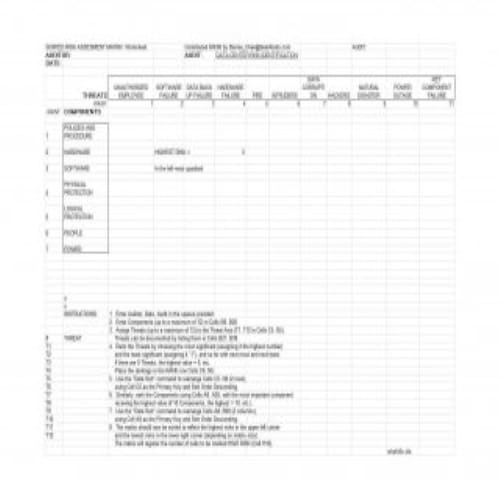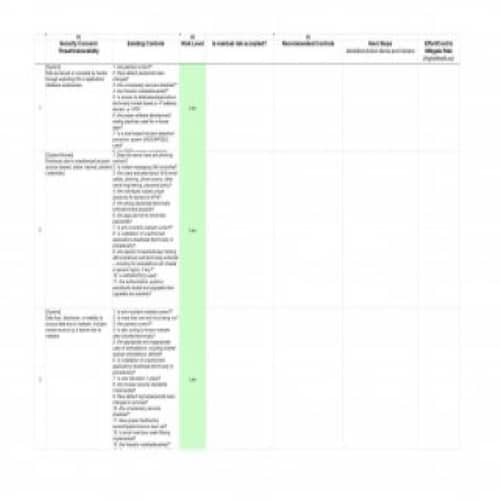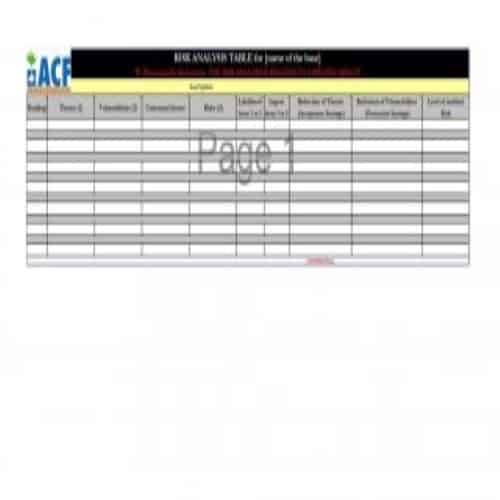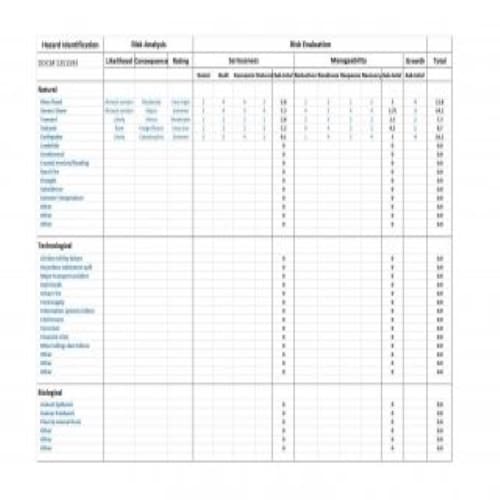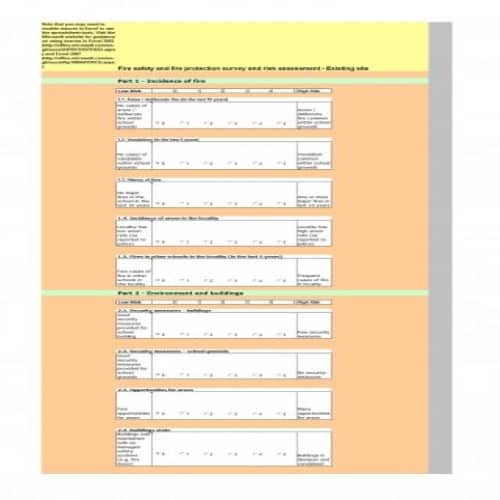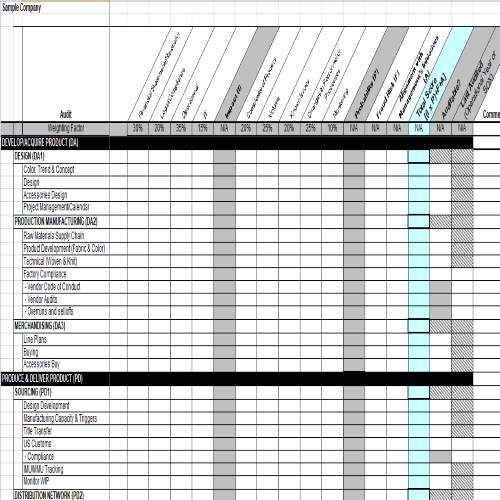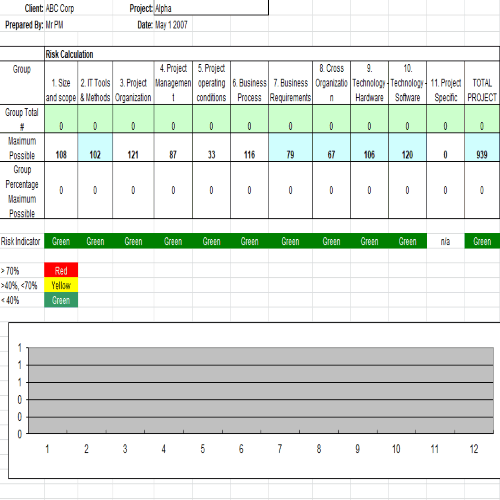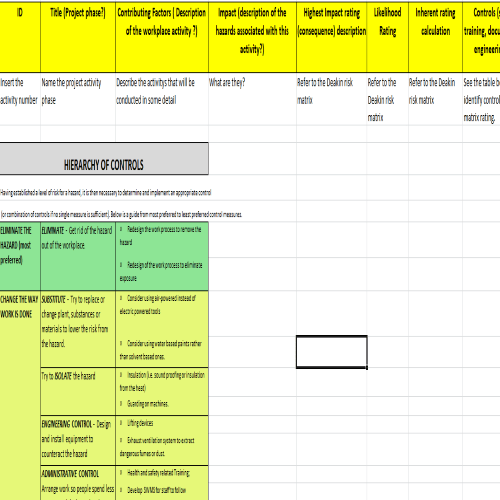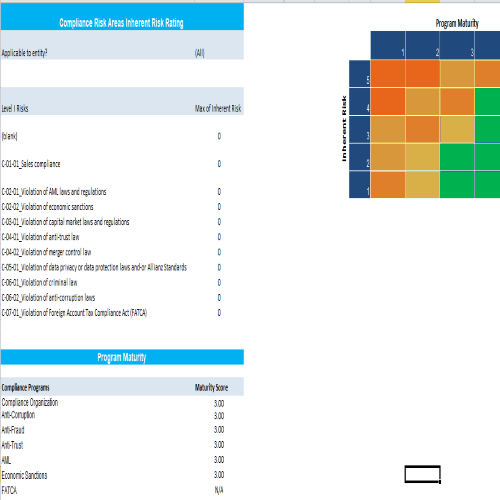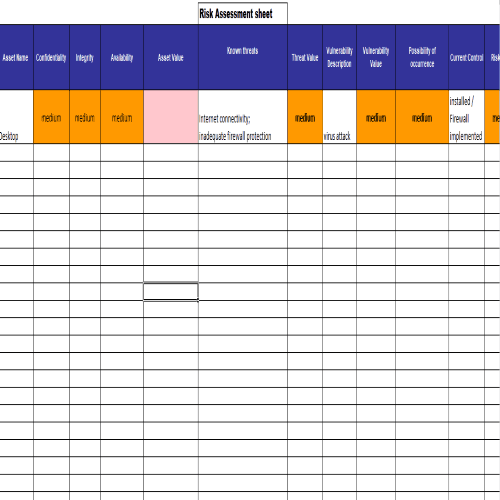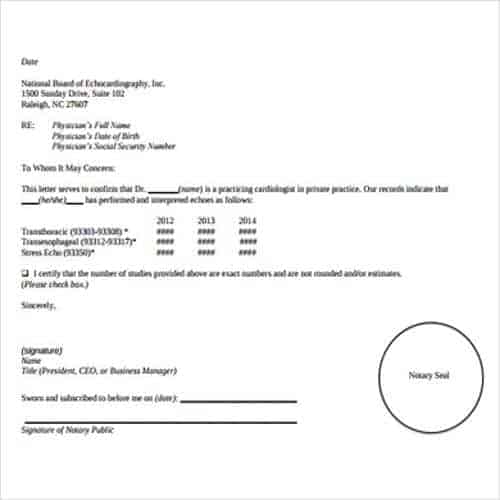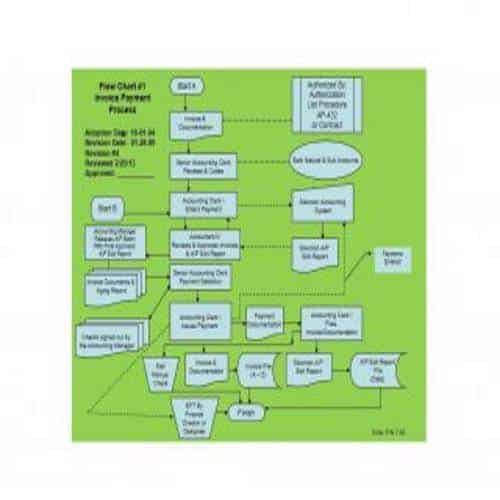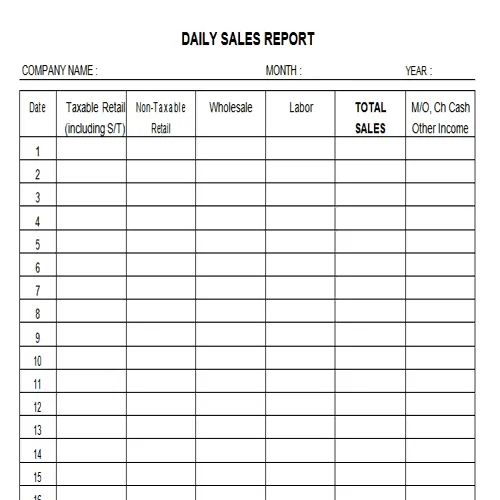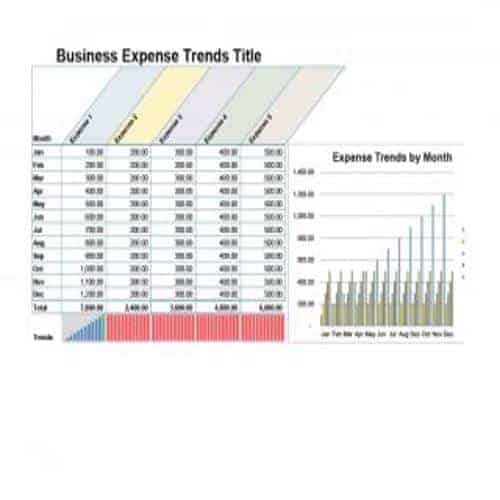Risk analysis is a tool used to identify and measure level of risks in a business or a particular project or task. It is a formal business document which is almost used by every type of business. As the businesses need to take different decisions or carry out different projects on daily basis, it does not mean that they just do so. Every project or task that is to be performed is carefully analyzed and properly planned. All of its advantages and disadvantages are considered. The potential risks of doing or not doing a particular task must be properly identified and determined. This is where the ‘Risk analysis’ is performed. It solely depends upon the entities whether to create or use pre-formatted risk analysis templates.
It is totally impossible that, for a particular project, there will be no risk at all. There will always be a risk associated with a project however, it could be great or just minimal. So, after a proper risk analysis, an entity must categorize them according to their probability of happening. For preparing a proper ‘risk analysis’ report, make sure to check out the given below 30+ amazing risk analysis templates. These quality templates are given in MS Word and MS Excel, so that you can easily edit them for your particular purpose.
Risk Analysis Templates in MS Word
Risk Management Plan
University Risk Assessment
Risk Analysis Sample
Risk Analysis Plan Template
Risk Assessment Sample
Risk Management Procedure
Sample Risk Management Plan
Risk Assessment Template
Project Risk Management
Health Care Risk Assessment
Risk Analysis Report
Risk Analysis Workbook
NASA Sample Risk Analysis
Risk Management Framework
Networking Group Risk Analysis
Physician Risk Analysis Report
Sample Risk Management Plan
Infrastructure Risk Analysis Plan
Security Risk Analysis Template
Elements of an effective Risk Analysis Report
Some of the important things that you should consider in your risk analysis report are as follows:
Management of Project:
A particular project or a task can not be implemented or completed if the entity fails to mange it properly. So, it is important to identify and minimize the potential risks which cause difficulty in the proper management of project. Some of these risks are given below:
- Not enough workforce available or involved in the project.
- Too many people are involved in the project.
- Entity carrying out many projects at the same time.
- Planning or control of the project is not proper.
- Modifications in the project are not properly implemented.
- There is a conflict of interest.
- Project is not properly organised.
After identifying all the possible potential risks, arrange them according to their likelihood of happening.
External Factors:
External factors are associated with every project. The biggest disadvantage is that these external factors can’t be controlled. Entity has no influence over these factors. External factors include both predictable and unpredictable factors.
Predictable external factors are those which can be identified by assessment, information and research. When identifying these factors, make sure to include their proper details and also record the possible impact of them. Some of predictable external factor risks are as follows:
- Increase in Inflation.
- Changes in technology.
- Social changes.
- Changes in environment.
- Changes in governmental policies e.g, tax increases.
Unpredictable factors are those which happen or occur without any prior warning or information. The most unpredictable factors risks are:
- Sabotage.
- Natural disasters.
- Side effects.
Legal and Technological factors:
Sometimes, legal risks are quite trouble making. That is why you need to identify and analyse them properly. Some legal factors risks are:
- Breach of contracts.
- Labor disputes.
- Different issues at workplace.
- Bills and legislation.
- Violations e.g, of trademark or a license etc.
Technological risks occur mainly due to change and advancement in technology. Identify these risks according to a specific category and then record their possible impact on your project.
Risk Analysis Templates in MS Excel
Risk Analysis Sheet
Sample Risk Analysis Plan
Project Risk Analysis Sheet
Simple Risk Analysis
Risk Analysis Blank Sample
Quantitative Risk Analysis
Sorted Risk Analysis
Detailed Risk Analysis Sample
Risk Analysis Table
Risk Analysis with Evaluation
Fire Protection Risk Analysis
Company Risk Analysis Report
Project Risk Analysis Sample
Formal Risk Analysis
Sample Risk Assessment Analysis
Sample Risk Analysis Sheet
Advantages of Risk Analysis
Risk analysis is of a great importance to every business as it has many advantages. Some of these advantages are given below:
- Risk analysis will help in creating awareness in employees.
- It helps reduce issues at workplace.
- It can be used as a tool for training of workforce.
- It helps to identify and properly manage potential risks and threats for better performance.
- By being more proactive, risk analysis ultimately helps you save a lot of time, effort and money.
- Risk Analysis improves the health and safety standards at the workplace.
